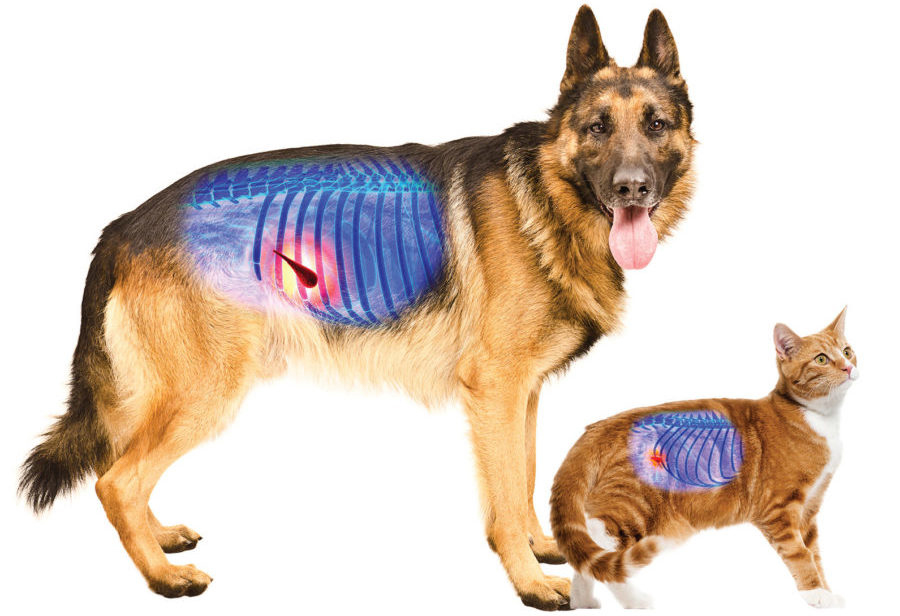Pancreatitis is an inflammatory condition common in dogs and cats. It can be sudden or an ongoing condition. Some cases are mild while others have many clinical signs.
Most cases of pancreatitis in dogs and cats don’t have a specific cause. However, several risk factors have been identified. Miniature Schnauzers have a high incidence of cases and may have a genetic predisposition. Other breeds that have reported an increased prevalence are Yorkshire Terriers, Cocker Spaniels, Dachshunds, and Poodles.
Dietary indiscretion is believed to be a common risk factor in dogs as well as high levels of triglycerides in the blood. Occasionally, severe blunt trauma can also cause pancreatitis. Infectious diseases are possible but there isn’t enough evidence to support this. In dogs, pancreatitis has been reported with tick bite fever. In cats, infection with Toxoplasma gondii and feline infectious peritonitis are considered most important.
Symptoms of pancreatitis are not eating, vomiting, icterus/jaundice, abdominal pain, diarrhoea and weakness. In chronic pancreatitis, there may also be weight loss. Dogs and cats with milder forms of pancreatitis may have only vague clinical signs, such as anorexia, lethargy, or diarrhoea.
Pancreatitis is diagnosed by assessing the clinical signs and often a certain breed or body condition will make you more suspicious of the condition. It can be diagnosed on ultrasound scan and blood tests.
In-house snap tests are available. However, a negative test suggests that pancreatitis is very unlikely, whereas a positive test suggests pancreatitis. In the latter case, pancreatic lipase immunoreactivity (PLI) concentration should be measured to confirm the diagnosis, as well as monitor response to treatment. All clinical findings should be used together to get the most accurate diagnosis.
The treatment for pancreatitis is supportive care with fluid therapy, medication to treat vomiting or nausea, and pain control.
Animals with mild forms of pancreatitis should be carefully assessed for the presence of risk factors such as high glyceride or calcium levels and concurrent diseases such as cholangitis, hepatitis, inflammatory bowel disease, diabetes mellitus. Feeding a low-fat diet is crucial for treatment success.
The prognosis in mild cases of pancreatitis is good, but the prognosis in severe cases of pancreatitis is guarded in both dogs and cats.

IMAGE COURTESY OF ANIMAL WELLNESS MAGAZINE

